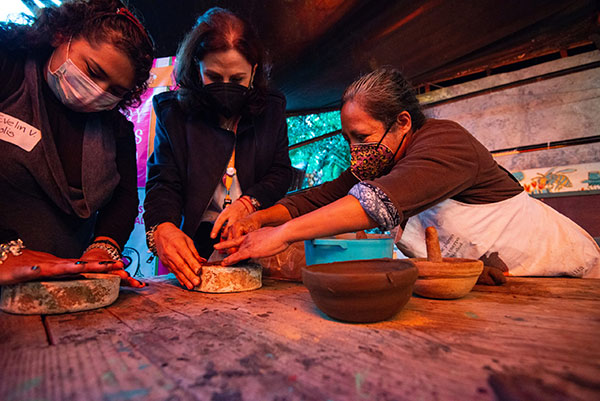Peru (Lima) – Used Lead-Acid Battery Recycling
Project Overview
Peruvian Ministry of Environment
Center for Research in Environmental Health (CREEH – Peru)
Soil
The goal of this project, in partnership with the Peruvian Ministry of Environment, is to conduct a situational analysis of used lead acid battery (ULAB) recycling in Lima and to define the extent of the contamination.
The assessment involves surveying the community to confirm unsafe recycling activities. Soil sample tests will identify elevated concentrations of lead,
Recycled lead is a valuable commodity and for many people in the developing world the recovery of car and similar batteries (Used Lead Acid Batteries – ULAB) can be a viable and profitable business. In Peru, the informal recycling of ULAB is probably one of the most important problems of pollution. In CP Valle Sagrado, located in Carabayllo, Lima, children presented blood lead levels two to five times higher than 10 μg/dL (World Health Organization threshold). The source of lead exposure for these children has been determined to be the informal recycling and disposal of used lead acid batteries.
This project is conducting a situational analysis of used lead acid battery recycling in Lima, using the methodology of the Basel Convention (specifically, Section A of the Basel Convention Training Manual – National Management Plans for Used Lead Acid Batteries). In order to make the analysis, it was necessary to collect data about the numbers and types of batteries in use, information about how the ULAB are collected, stored, transported and recycled and what legislation exists for the management of ULAB. In addition, this project is working to determine how much the workers in the industry and local populations understand about the risks associated with ULAB.
Solution Implemented
The methodology included the validation, adaptation and application of the questionnaires approved by the Basel Convention to assess the management of ULAB at the national level. The surveys were designed to get information from battery dealers, manufactures, importers, consumers, general public and collectors. Additionally, the project is analyzing the data regarding battery import and export, number of vehicles, etc. The surveys were applied in Lima and Callao, as they have many factories and smelters of batteries.
Project Results
Estudio sobre el manejo de baterías automotrices de plomo ácido usadas generadas en Lima y Callao.
Recommendations and Lessons Learned
- Working with the Ministry of Environment has served as an excellent experience of communication and teamwork with a governmental agency of the country. This experience has facilitated the development of the project.
- The surveys validated in this project should be applied to other Departments of the Country to have a better understanding of the scope of the problem in Peru.




